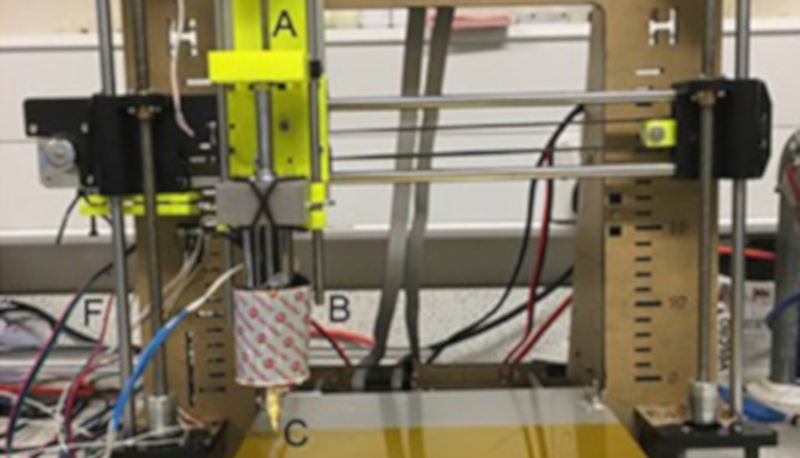While refitting a 3D printer for food printing isn’t really a new idea, we liked the detailed summary that appeared from a team from the University of Birmingham which converted an i3 clone printer to use a syringe extruder.
The syringe in question was meant for veterinarian use and is made of metal. The paper suggests that the metal is a better thermal conductor, but it was’t clear to us if they included a heating element for the syringe. In the pictures, though, it does appear to have some insulation around it. In any case, we imagine a metal syringe is easier to keep clean, which is important if you are depositing something edible.
In addition to the syringe mount which they did in Tinkercad, the paper includes notes about software configuration. In particular, they modified Marlin and detailed the exact changes they made which might be useful if you were to embark on a similar project.
We are never sure about printing something you actually eat, but a syringe extruder like this could also dispense solder paste or other similar substances. Naturally, if you used solder paste in it, you’d probably never use it for food ever again.
We suppose pushing cake frosting out is no worse than other ways to do it, especially if you made sure you had a clean food-safe bed. Another common paste to extrude is clay which you can fire into ceramics.
















Considering the mass production that’s food this will remain kind of a niche item where it’s strengths apply.
yea, that’s what I want, goop in the danger zone deposited over 6 hours to make a 4mm thick cookie
there ist no such thing as an i3 clone printer…
In order to deposit gel and paste-like materials, a commercially available HICTOP Prusa i3 plastic 3D printer was modified.
I did an air driven one like this which I used to extrude frosting and ceramic. It worked pretty well.
Just used an off the shelf “solder/glue dropper” and put it on using Smoothieware and set it up just like it was a laser.
With air it required using a constant speed and setting the dial manually to adjust flow….but worked pretty well.
https://youtu.be/XwjnVzfl0wA
https://youtu.be/mwJF7NyFN2k